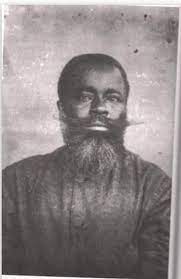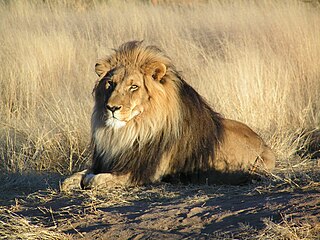This article has multiple issues. Please help improve it or discuss these issues on the talk page . (Learn how and when to remove these template messages)
|
Chief George Diepiriye Goodhead was a prominent Ibani chief.
This article has multiple issues. Please help improve it or discuss these issues on the talk page . (Learn how and when to remove these template messages)
|
Chief George Diepiriye Goodhead was a prominent Ibani chief.
George Goodhead was the eldest son of King Pepple I (Perekule) of the Kingdom of Bonny. He was noted as a child of King Perekule born out of wedlock. The George Goodhead house was initially known as Indian queen; as those were "two traders who ascended its chieftaincy." [1]
It was common for house names to transform, often reflecting the signing of treaties by a chieftain. So, George Goodhead was earlier known as Indian queen, then Ukonu, George Goodhead and later Ukonu again, which was closely associated with King Opubo of Bonny during his lifetime, and was an ally and supporter of the Anna Pepple group (made up of more than 10 houses: Wariso, Kuke, George Goodhead (Ukonu), Iruanya (Uranta), Ibifa, Kiepirima (Toby), Epelle, Kala Ndassa, Tom Taylor, Wogu Dappa, Strongface etc.) against the Manila Pepple group in Bonny. [1]
Chief George Diepiriye Goodhead was a ranking leader of the Anna Pepple house and took an active part in maintaining the rulership of the King Pepple dynasty. He championed an ultimately unsuccessful attempt against the regency of Chief Maduka (Madu) in the mid 1830s; but was later imprisoned by Madu following a trade misunderstanding over collection of the comey the Europeans paid. During the travails of Chief Goodhead, Chief Omuso (Jack) Brown of Finima, who later led a successful coup against Maduka for William Dappa Pepple to assume the reins of Bonny leadership, rallied support for him. [2] Goodhead has been expressly presented as very significant in the evolving politics between the Anna Pepple and Manila Pepple groups of houses in the ancient kingdom of Bonny, and was revered as rich and important, equal in status to both King Halliday and Chief Jack Brown during his time. [3]
Goodhead was a signatory to the 23 January 1854 treaties, between Great Britain and the native princes and chiefs of the west coast of Africa, relating to commerce and the slave trade. [3]
Following a trade dispute and a civil war between Bonny and Opobo, and subsequent arbitration, on 3 January 1873 the chiefs of Bonny and Opobo signed a treaty under which "six markets on the Imo were assigned exclusively to Bonny, and all members and houses claimed by Jaja as part of the Anna Pepple group and who are still in Bonny were to be returned to Opobo. Most of them, for example Wariso and George Goodhead, had already made their way to Opobo, the most important remaining ones were Kuke (Cookey) and Oko Epelle and their people. Note that "Kuke had with George Goodhead sought asylum at Juju town (Finima)" during the great tussle between the Anna Pepple and Manila Pepple groups in Bonny." [1]
Chief George Goodhead migrated and arrived Opobo between 1870 and 1872, soon after Jaja's arrival, and thus was amongst the fourteen out of the eighteen houses that left with Jaja from Bonny. Him and his family were therefore one of the foremost bands of settlers in what is currently Opubo-Kala-Ama (Opobo) in the new territory. [4]

A trade name, trading name, or business name is a pseudonym used by companies that do not operate under their registered company name. The term for this type of alternative name is a "fictitious" business name. Registering the fictitious name with a relevant government body is often required.

The Ijaw people, otherwise known as the Ijo people, are an ethnic group found in the Niger Delta in Nigeria, with significant population clusters in Bayelsa, Delta, and Rivers. They also occupy Edo, Ondo, and small parts of Akwa Ibom. Many are found as migrant fishermen in camps as far west as Sierra Leone and as far east as Gabon. They account for about 1.8% of the Nigerian population according to CIA Factbook. The Ijaws are one of the most populous tribes inhabiting the Niger Delta region and the eighth largest ethnic group in Nigeria.

Bonny is a traditional, coastal town and a Local Government Area (LGA) in Rivers State in Southern Nigeria, on the Bight of Bonny. It is also the capital of the Kingdom of Bonny.
Opobo is an Ijaw speaking community in Rivers State, Nigeria

King Jaja of Opobo belonging to the Igbo ethnicity, was the founder and first king of the Opobo Kingdom in present-day Rivers State and Akwa Ibom State of Nigeria.
Bonny Island is situated at the southern edge of Rivers State in the Niger Delta region of Nigeria near Port Harcourt. Ferries are the main form of transport, though recently an airstrip has been built and it’s fully functional - with flights from Lagos, Abuja and Port Harcourt respectively to and from the island. The local dialect spoken in Bonny Island are Igbo language and Ibani language.

The Legends of Africa reflect a wide-ranging series of kings, queens, chiefs and other leaders from across the African continent including Mali, Benin, Ghana, Nigeria, Congo, Ethiopia, Eritrea and South Africa.

The Obolo people also known as Andoni or Doni, are a multi-ethnic group in the Niger Delta region of Nigeria. Obolo people are primarily found in Rivers State and Akwa Ibom State, however, they are also are present in the states of Bayelsa, Cross River, Abia, and Enugu.
The Kingdom of Bonny, otherwise known as Grand Bonny, is a traditional state based on the town of Bonny in Rivers State, Nigeria. In the pre-colonial period, it was an important slave trading port, later trading palm oil products. During the 19th century the British became increasingly involved in the internal affairs of the kingdom, in 1886 assuming control under a protectorate treaty. Today the King of Bonny has a largely ceremonial role.

Chief Oko Jumbo was an Igbo chief of slave descent in the Kingdom of Bonny, a state in the Niger Delta, now part of Rivers State, Nigeria. For many years in the 19th century he was the effective ruler of Bonny. Though the king in Bonny, and Warribo was the head of the Manilla House, "Oko Jumbo and Ja Ja were looked upon by every one as being the rulers of Bonny."
George Oruigbiji Pepple, otherwise known as Perekule VII, ruled the Kingdom of Bonny, an independent trading state in the Niger Delta between 30 September 1866 and 14 December 1883, when he was deposed. After the British signed a treaty making the state a protectorate, he was restored on 22 January 1887, ruling until his death.

The Kalabari Kingdom, also called Elem Kalabari, is the independent traditional state of the Kalabari people, an Ijaw ethnic group, in the Niger River Delta. It is recognized as a traditional state in what is now Rivers State, in southern region of Nigeria.
John Ikuru (1877–1947) was the son of king Ikuru Efuya, founder of Ikuru Town and Madam Obiringene of Opobo; his mother came from Ekede. He was born in 1877 in Ikuru Town, and had his primary school education at St. Paul's School, Opobo/Nkoro, from 1887 to 1895, and secondary school education at the Wesley Boys’ High School, in Lagos. At that time, Christianity was already sweeping through the entire Western Region of now Nigeria and the Niger Delta, through the evangelistic activities of the Church Missionary Society with Bishop Ajayi Crowther as the pioneer Missionary. So, trained in Lagos, John Ikuru embraced Christianity and became exposed to Christian ethics and philosophy.
Harold Jenewari Dappa-Biriye was a Nigerian politician who was a former chairman of the Niger Delta Congress and was known for his advocacy of minority rights in Nigeria. He was also a former chairman of the Nigeria National Council of Arts and Council and it was during his tenure, the first festival (NAFEST) was held. An arts patron, he promoted events such as Bonny war canoe regattas.

The King Jaja of Opobo Memorial is a bronze monument in memory of King Jaja of Opobo, erected by public subscription in 1903. It was listed as being of special architectural, historical or cultural significance by the National Commission for Museums and Monuments on 14 August 1959.

Fubara Manilla Pepple, otherwise known as Fubara I Agbaa Pepple II, was a Nigerian monarch. He was the ruler of the Kingdom of Bonny from 1754 to 1792.
Hindostan was launched at Liverpool in 1817. initially, she traded with India under a licence from the British East India Company (EIC). She also traded with the United States, Singapore, Africa, and Central America. She was wrecked on 24 December 1838 near Omoa, Honduras.

King Otuo Ogbalakon (Ogbolakon) or King Otuo was the 17th-century warrior-king of Obolo (Andoni) people in the Eastern Niger Delta. He was unpopular for fighting against Bonny and their colonial allies. Her mother, princess Ariaunwa Okpok-Ogbolikan of Old Unyeada was recorded by history as the first Obolo (Andoni) Princess to rule as a monarch (Okaan-Ama) after the demise of her father, King Ikana Okpok of Edabiri dynasty in the 17th century. Princess Ariaunwa married Prince Ogbolaikon of Alabie now known as Agwut-Obolo and begat Otuo. In 1792, when Otuo became of age he was crowned as the King of Old Unyeada Kingdom.
Ndoki Ndoki also known as Ọkwa are a tribe of Igbo people and they are located at the hinterland of Igboland and coastal region of Bonny and Opobo.